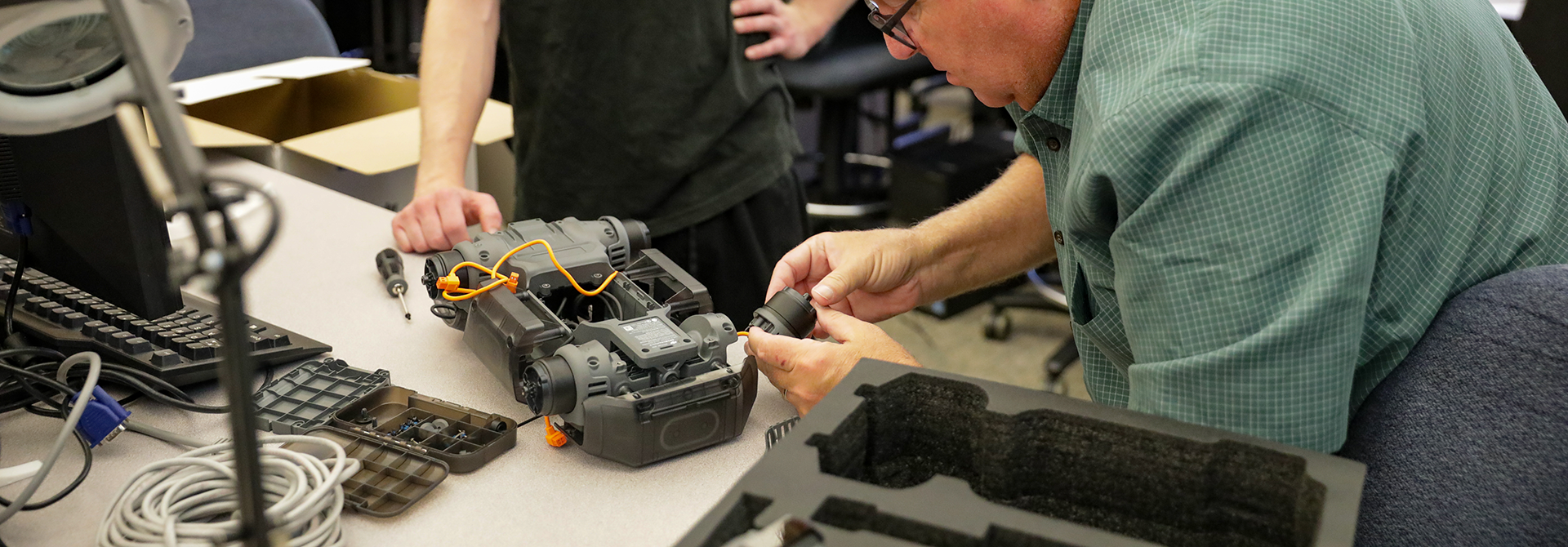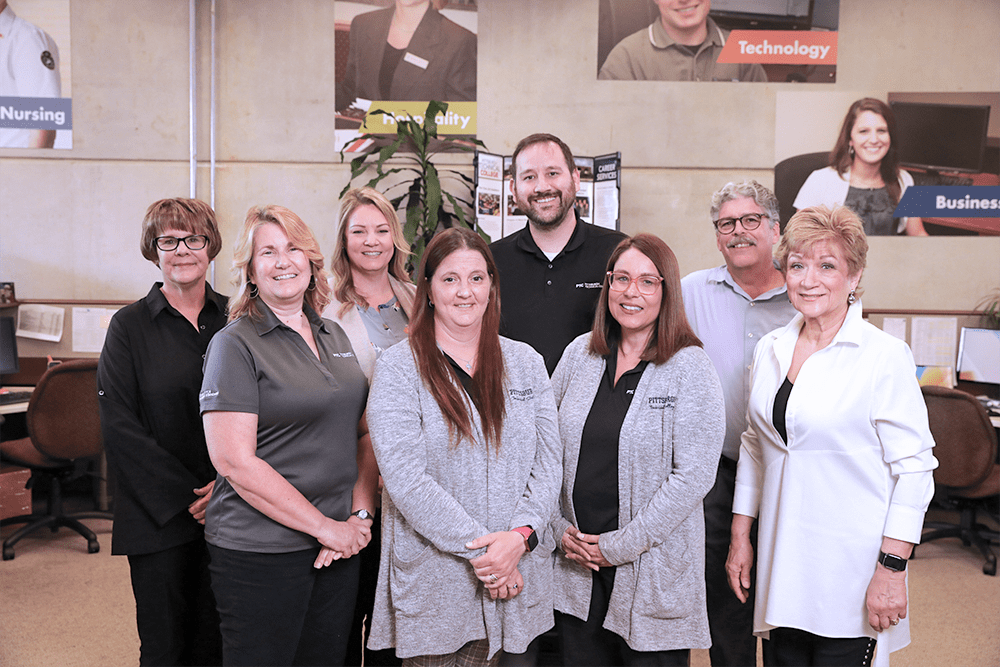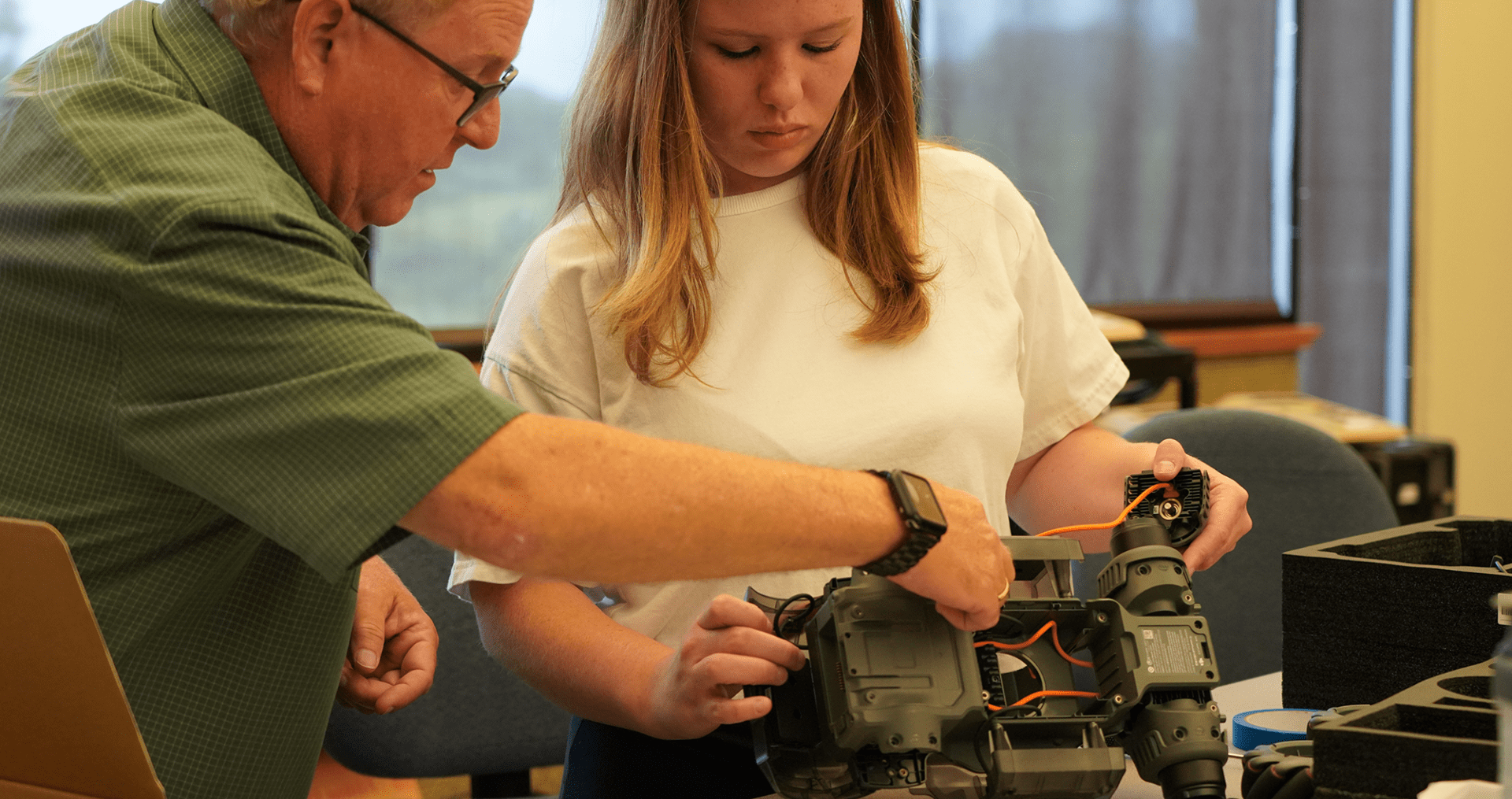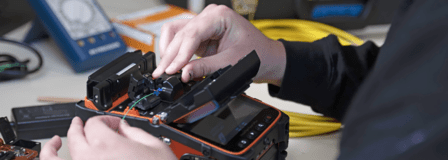Robotics & Autonomous Engineering Technology

Associate of Science
Robotics & Autonomous Engineering Technology
Robotics engineering program overview
Service Engineer Technicians (SETs) are the in-demand, skilled doers who maintain and customize robotic or autonomous systems—and they’re indispensable from engineering all the way to the manufacturing site.
Our new 18-month robotics and autonomous engineering technology program was designed in partnership with Aurora, a leading company in self-driving headquartered in Pittsburgh. With a growing fleet of autonomous vehicles in Pittsburgh, Aurora came to PTC with the desire to help train the next generation of skilled SETs in the region.

Robotics technology degree highlights
• Be a well-rounded robotic engineering pro by the time you graduate. Your studies will combine electronics in robotics, mechanical engineering, electrician, information systems technology, and more.
• Each quarter, robotics technology degree students participate in Industry Days to get an under-the-hood look at robotics careers and gain on-site experience, exposure to local employers, even job shadowing. As a member of the Pittsburgh Robotics Network and the Advanced Robotics Manufacturing (ARM) Institute, PTC also offers an educational experience immersed in the latest technology and business trends.
• PTC offers exceptional value and students have access to a variety of financial aid opportunities: we offer close to $20,000 in scholarships and grants toward your robotics technology degree.




Robotics engineering career outlook: Industries that need you.
Robotics is transforming businesses and manufacturing. Put your skills to work in a variety of robotics and autonomous engineering technology industries, including:
- Autonomous vehicle companies like Aurora
- Robotics engineering firms
- Transportation
- Medicine
- Defense and security firms
- Education, especially remote learning and other support systems
- Manufacturing
Local employers are seeking new hires. Like you.
The Career Services staff at Pittsburgh Technical College will partner with you as you get ready to launch your career, including landing that all-important internship that’s a required part of the robotics technology degree program.


Education that pays off.
In 2021, the median pay for robotics and mechatronics technicians was $60,360 per year*
96% of PTC graduates are employed in-field.** That means we measure success by our grads who are working in their chosen fields and not just “fully employed” like other colleges and universities.
What you’ll learn in the robotics and autonomous engineering technology program
Experience hands-on learning at its best at PTC. As a robotics technology degree student, you’ll have opportunities to work on motor controls, build robots, use mechanical fabrication equipment, and handle electronics in robotics that you’ll need to succeed. You’ll also learn CAD software and basic coding.
Key skills you’ll develop include how to:
- Set up, maintain, and verify the proper operation of equipment involving robotics, autonomous technology, and electronics in robotics.
- Design, test, and troubleshoot elements in robotics and autonomous technology systems.
- Develop code for robotics and autonomous engineering technology systems.
- Effectively articulate system requirements, problems, and troubleshoot steps via multiple communications modes either individually or as a group.

Robotics and autonomous engineering curriculum
The Associate of Science in Robotics and Autonomous Engineering Technology program consists of six quarters. For course descriptions, visit our catalog.
*Successful completion of this course requires a grade of “C” or better.
+ May be substituted with another GES course.
Tuition & financial aid
Our goal is to help you build an affordable plan for your education, the most important investment you can make to set yourself up for life-long success. We offer a range of institution grants and scholarships, and we can help you find other outside resources to complete your package.
Re-entry application
We encourage students who have withdrawn from an academic program to reapply to complete a robotics technology degree and successfully graduate.
Tuition & financial aid
Our goal is to help you build an affordable plan for your education, the most important investment you can make to set yourself up for life-long success. We offer a range of institution grants and scholarships, and we can help you find other outside resources to complete your package.
Re-entry application
We encourage students who have withdrawn from an academic program to reapply to complete a robotics technology degree and successfully graduate.

*Bureau of Labor Statistics, U.S. Department of Labor, Occupational Outlook Handbook, Electro-mechanical and Mechatronics Technologist and Technicians, at https://www.bls.gov/ooh/architecture-and-engineering/electro-mechanical-technicians.htm
**Showcases graduates from January-June (or January, April & June) 2022 classes. Data includes those who were available for work and were offered and/or received career search assistance from 1/1/2022-12/30/2022. Includes full-time, part-time, or freelance positions. Visit https://ptcollege.edu/career-assistance-data/ to learn more.














